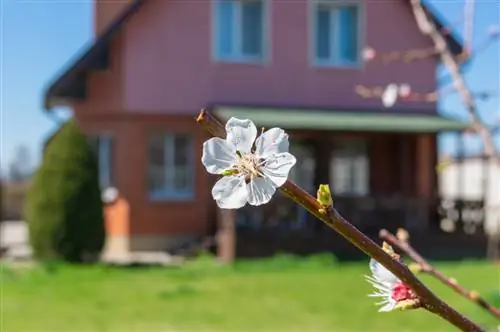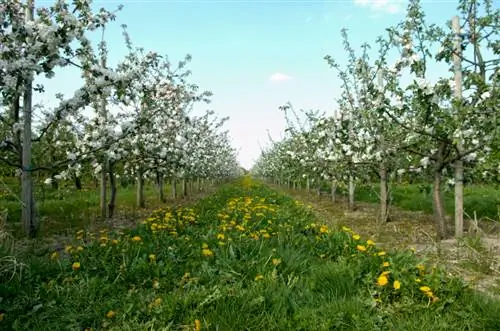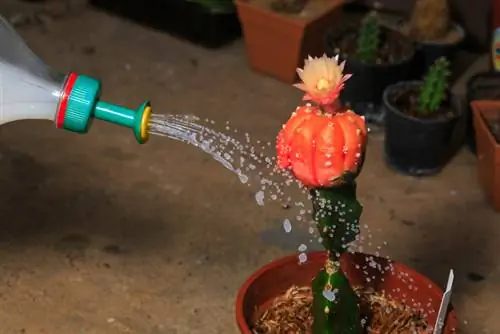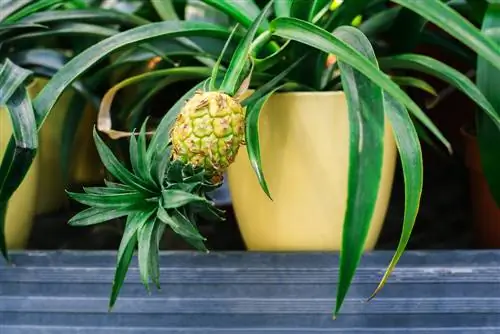- Author admin leonars@hobbygardeners.com.
- Public 2023-12-16 16:46.
- Last modified 2025-01-23 11:22.
A lot of sunshine is extremely important for this tree. But the sun can't get the sweet fruits out of him. There also needs to be enough nutrients in its soil for it to bear as expected. But when will he be satisfied with fertilizing?
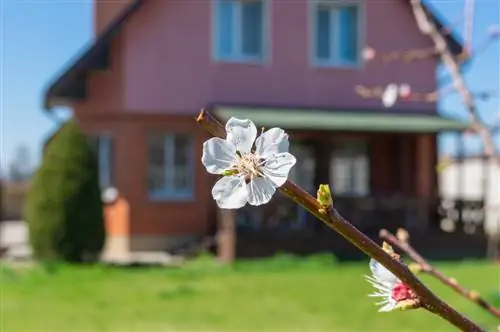
How should an apricot tree be fertilized?
To optimally fertilize an apricot tree, add organic fertilizer to the root area immediately after planting. Then fertilize annually in spring by spreading three liters of compost per square meter around the root area.
The first nutrients
The young apricot tree receives its first dose of nutrients immediately after planting. When rooting, an organic fertilizer is the best way to provide it with everything the tree needs. That's why it's ideal if a thin layer of garden compost is spread around the root area.
Apricot trees like nutrient-rich soil. If the soil is sandy and poor, a starter supply is not enough. Then the soil must be improved before planting by mixing it with leaf or bark compost. This will increase its humus content.
Annual supply of fertilizer
After planting, the apricot tree must continue to receive regular nutrients. Whenever possible, a natural fertilizer is preferred:
- fertilizing once a year is enough
- spring is the optimal time
- Use three liters of compost per square meter
- distribute around root area
The tree is well looked after. Further fertilization is no longer necessary. On the contrary, too high a nutrient concentration can even have a detrimental effect on its vitality.
Tip
Ripe horse manure is also well suited to nourishing this tree. Make sure that it comes from organic horse farming so that it does not contain any harmful substances.
Improve frost hardiness
How hardy the tree becomes is also related to its living conditions. To further improve the tree's frost hardiness, it can be supplied with some patent potash (€33.00 on Amazon). The best time for light potassium fertilization is immediately after the harvest.
Little tree in a pot
Since the apricot tree is of modest size and can be easily shaped by pruning, it can also be cultivated in a large container. Here it is particularly dependent on a regular supply of nutrients. Because the soil from which he can draw is very limited.
- fertilize every four weeks
- during the growing season from March to July
- organic fertilizers are ideal

